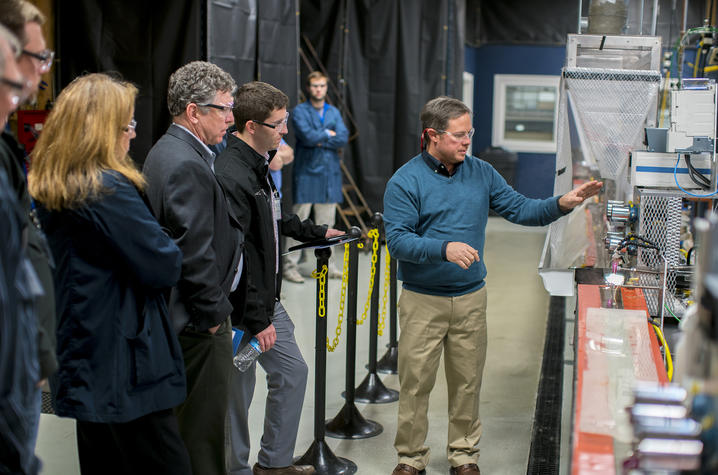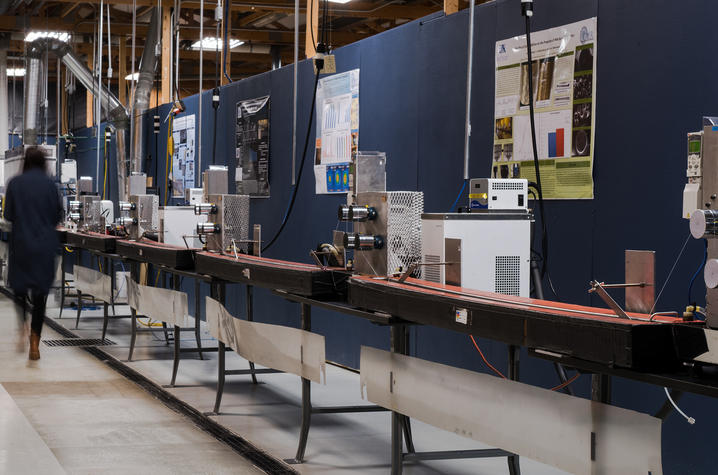UK CAER Receives $1M Grant for Carbon Fiber Research
LEXINGTON, Ky. (June 28, 2017) — The University of Kentucky Center for Applied Energy Research (CAER) received a $1 million U.S. Department of Energy (DOE) grant to continue their leading-edge research in developing low-cost, high-strength carbon fiber.
The center's Carbon Materials Technologies Group received the award for a project titled "Precursor Processing Development for Low Cost, High Strength Carbon Fiber for Composite Overwrapped Pressure Vessel Applications." The funding was part of DOE’s strategy to invest in discovery and development of novel, low-cost materials necessary for hydrogen storage and for fuel cells onboard light-duty vehicles.
The team will investigate solutions to critical issues in precursor fiber development that significantly contribute to the cost of carbon fiber, namely high polymer cost, inefficient water use and solvent recovery, low fiber throughput, energy intensive conversion, and high coefficient of variation (CV) utilizing their unique expertise and fiber development facility available at CAER. The center is home to the largest carbon fiber spinline at any university in North America.
If successful, the project will lower the cost of high quality carbon fibers by over 50 percent, opening opportunities for widespread application of carbon fibers in previously cost-prohibited areas, specifically in composite overwrapped pressure vessels for hydrogen storage.
"We appreciate DOE's confidence in our carbon fiber research and development efforts here at UK CAER,” said Matt Weisenberger, associate director of the Carbon Materials Technologies Group. "It is our hope that this project will show great promise for the future of carbon fiber for pressure vessels and many other commercial applications. A strong, vibrant and growing carbon fiber industry shows potential for creating new jobs and economic opportunities in Kentucky."
DOE’s Office of Energy Efficiency and Renewable Energy's Fuel Cell Technologies Office awarded a total of 30 grants during its annual funding opportunity announcement (FOA) in 2017. The 2017 FOA solicited early-stage materials research to advance the department’s goals of enabling economic and efficient transportation via fuel cell electric vehicles that use hydrogen fuel produced from diverse domestic resources.
More than 2,000 fuel cell vehicles have been sold or leased in the U.S. since 2015. These consume 95 percent less petroleum per mile than conventional internal combustion engine vehicles, have no tailpipe emissions, and offer quiet operation.






